A destination for Balkan food in Astoria has its origins in 1960s Sarajevo
May 3, 2025, 11:30 a.m.
Ukus has been serving up beloved Balkan dishes in Astoria for more than 20 years.
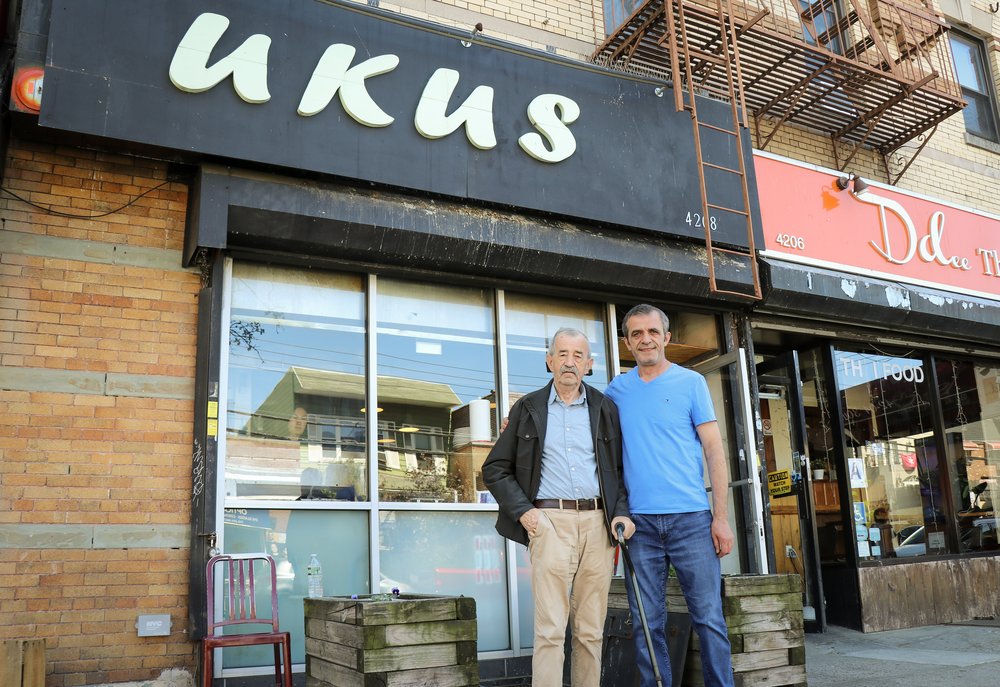
On a recent Wednesday afternoon, customers flowed in and out of Ukus, a small, no-frills, six-table spot in Astoria.
At the center of all the activity was Fiko Bektesevic, 49. He moved swiftly and purposefully around the space, grilling, baking, taking orders, bussing dishes, packaging items, handling payments and chatting with customers in Bosnian. He already knew almost all of them.
Bektesevic and his parents own Ukus, a destination for traditional Balkan food. For birthday parties, local Balkan families order whole pies of burek instead of pizza. Ramadan is another big month for Ukus, thanks to many local iftar orders. Whether it’s the cevapi (sausages), burek (beef pastry) or begova corba (chicken vegetable soup), they’re all made “how they should be,” he said.
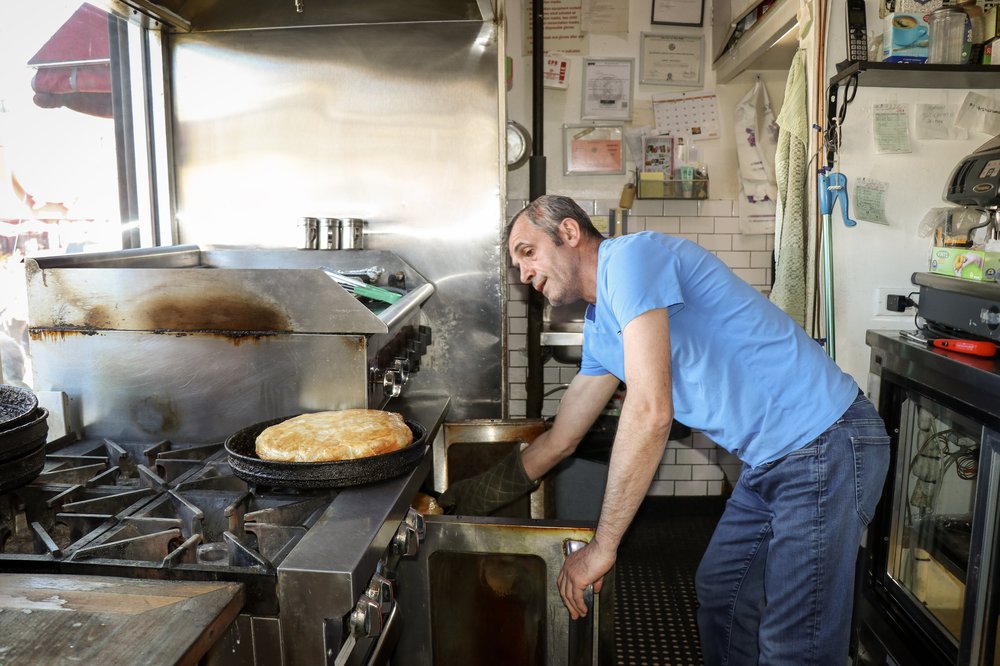
At Ukus, a small tv hangs about 10 feet up in the dining area. A refrigerated dessert display case separates the tiny, open kitchen from the dining room.
Ukus’ origin story begins in the 1960s in Sarajevo, now the capital of Bosnia and Herzegovina. Bektesevic’s parents — dad Dzafer and mom Idajeta — grew up in the same neighborhood, each learning to cook by helping their parents in the kitchen.
In 1969, they used their cooking skills to open Ukus (“taste” in Bosnian), an even smaller restaurant serving the classics of Yugoslavia. They operated it through the Yugoslav Wars, a series of deadly secessions and ethnic conflicts that occurred through the 1990s. Eventually, the Socialist Federal Republic of Yugoslavia split into six independent countries: Bosnia and Herzegovina, Croatia, Macedonia, Montenegro, Serbia, and Slovenia. It’s why the food is basically the same among the countries, Bektesevic said.
In 2001, mom and pop closed up shop and moved to New York, joining their daughter and son, who had come over one year earlier.
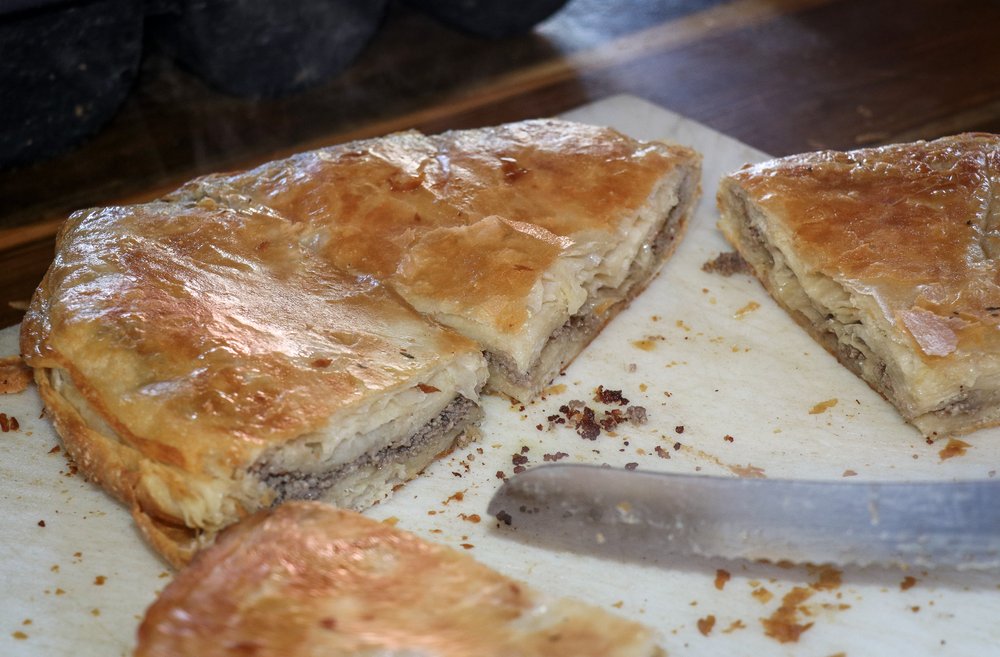
In 2006, the family resurrected Ukus in Astoria, among a community of former Yugoslavians. Other popular Balkan spots, Djerdan Burek and Sarajevo Grill, were already there.
“All the restaurants — we all know each other, we’re all friends,” Bektesevic said. “There is no competition. They have their customers. We have our customers. There’s customers for everybody.”
When the Astoria Ukus opened, its menu contained a trimmed-down version of the selection from the original Sarajevo location. Since then, the recipes haven’t changed, and neither have its bestsellers.
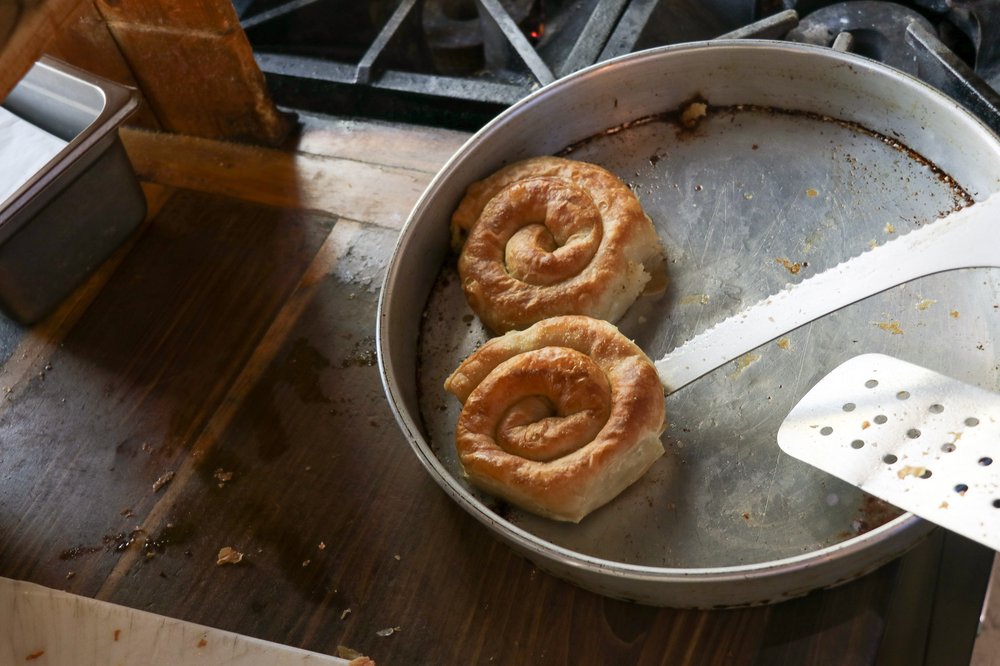
Days follow the same rhythms: Two hours before the 10 a.m. opening, Bektesevic makes the burek dough. He kneads and rolls, then stretches out the balls into a translucent curtain, about arms' length. For the potato rolls, he stuffs mashed potato inside the dough and shapes it into coils. For the burek, he slathers minced beef inside one layer and folds the dough many times to bake into soft sheets of pastry with a crackly and paper-thin golden crust.
Every two days, he ferments yogurt to accompany the burek. Another popular dish is a traditional Bosnian soup that features clear vegetal broth loaded with slices of okra, carrots, parsley, chicken and a dollop of sour cream that diners mix in. If you could imagine a sausage being fluffy, it’s his cevapi.
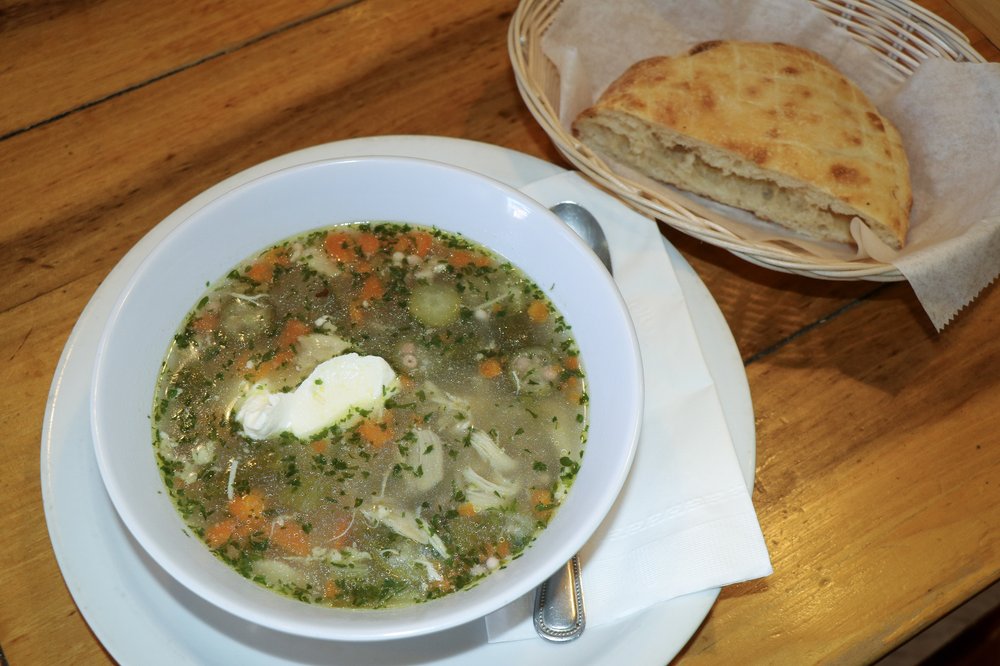
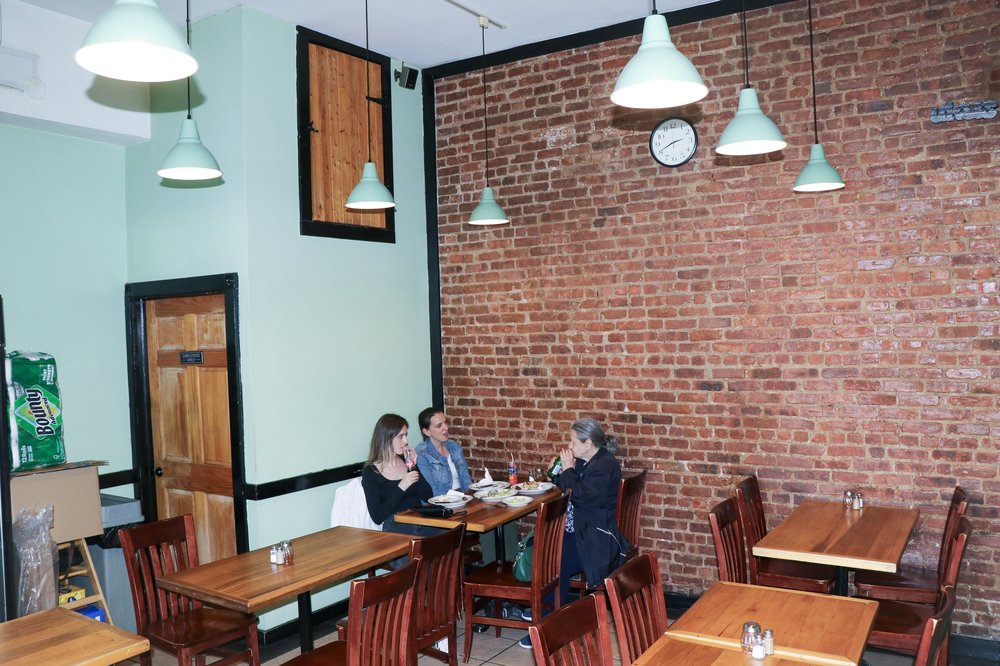
Over the years, the family has added new dishes. Stews like pasulj (smoked beef and beans). Desserts like tulumbe, a dough of flour and egg yolk that’s pan-fried and soaked in sugar syrup overnight.
“It’s very old, from centuries ago,” he said.
That taste of home, of childhood, calls to Ukus’ regulars. Valmira Raci drives one hour from Brooklyn twice a month to eat the cevapi. She’s been visiting regularly for a decade.
On Wednesday, she was having lunch with her mom and sister, all from Albania. Bektesevic placed salads, two cevapi dishes and a burek on their table.
The cevapi was “very fresh, very, very nice,” Raci said. “My family loves it, especially my mom. She says they have the best meat ever.”
At the table next to them, two kids ate cevapi sandwiches.
“They’re my most annoying customers,” Bektesevic joked, after making sure they washed their hands. “They’re my kids. See, this food here is good enough to feed my kids.”
Columbia suspended him after he built a cheating app. Now he’s raised $5.3M for it. Is a Jalapeño Sauvignon Blanc the drink of the summer? New Yorkers weigh in.